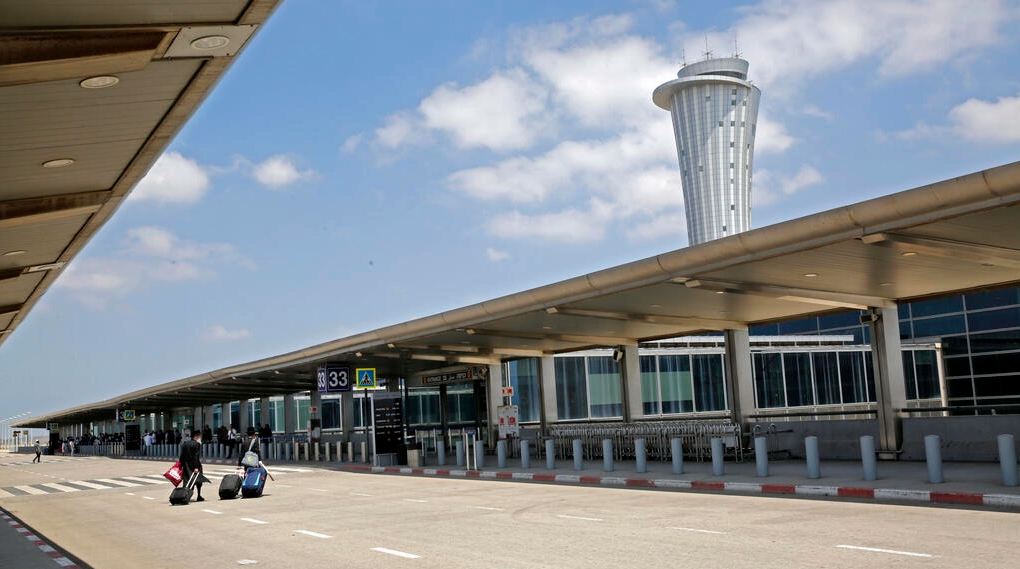Alwaght- Israeli regime's new rule about foreign passport holders' travel to the occupied West bank has triggered widespread condemnation as the measures could make visits of millions of Palestinian refugees to their motherland very hard if not impossible.
The occupying regime's rules, expected to take effect next week, will also place significant curbs on the ability of foreigners to study, volunteer or work in the occupied West Bank, AFP reported.
Under the regulations, first published in February to a storm of protest, foreign passport holders -- including Palestinians living abroad -- will no longer be able to obtain visas on arrival and instead have to apply for them at least 45 days in advance.
In most cases, foreigners will no longer be able to arrive via Israel's main airport near Tel Aviv but only through the land crossing between Jordan and the West Bank, which was seized and occupied by Israel in 1967.
The new rulebook drafted by the Israeli defense ministry body responsible for Palestinian civil affairs, known as COGAT, is expected to come into force on Monday after being delayed twice by legal challenges.
HaMoked rights group that led the supreme court appeal against the "draconian" measures said the new rules will deprive "thousands of Palestinian families of the right to live together without interruption and to live a normal family life".
Canadian doctor Benjamin Thomson, one of the 19 plaintiffs involved in the legal challenge, said the Israeli move would disrupt the work of health professionals.
"These draconian measures will severely impact their work, and impair the lives of the Palestinian people," said Thomson, director of the Keys of Health project aimed at rebuilding healthcare in the Palestinian territories.
Foreign spouses visiting the occupied West Bank will be limited to three- or six-month permits, with limits also placed on foreign volunteers.
"This is micromanaging, with the purpose to damage the Palestinian social fabric," said Sam Bahour, a Palestinian-American businessman who moved to the occupied West Bank from Ohio in 1995.
The regulations will disrupt the visits of thousands living abroad without Palestinian identity cards.
Currently Palestinians with a foreign passport and no Palestinian ID can avoid the huge queues at the Allenby Bridge land crossing with Jordan by flying into Ben Gurion airport near Tel Aviv.
There they risk being arbitrarily denied entry after sometimes invasive security checks but under the new rules they will have to join the thousands with Palestinian IDs at the overstretched Allenby Bridge.
The formalities can take 12 hours or more during peak periods in summer.
In the West Bank city of Ramallah, Palestinian lawyer Rasem Kamal said he has been inundated with clients from the diaspora wanting to register power of attorney amid deep uncertainty about arranging their affairs.
"Many people are rushing to come to the West Bank and finish their business here or give the power of attorney because they understand... there may be restrictions on their ability to visit," he said.
Ahmed Yassin, a Palestinian-American who divides his time between Monterey, California and the West Bank, is among thousands visiting Ramallah to see extended family and reconnect with their roots.
"I've been to a wedding every day for the past two weeks, I'm exhausted," he joked.
His wife Maggie said they did not come to see tourist sites like the Dead Sea frequented by other Americans.
"We come to see our family, and enjoy the country and to teach our kids about the Palestinian culture," she said.
Émigré Palestinians hurry back to visit fearful of new Israeli rules
Palestinians from the millions-strong diaspora have been flocking to the occupied West Bank, fearing it may be their last visit to their homeland.
Palestinian lawyer Rasem Kamal, based in the West Bank city of Ramallah, told AFP he has been inundated with clients from the diaspora wanting to register power of attorney amid deep uncertainty about arranging their affairs.
"Many people are rushing to come to the West Bank and finish their business here or give the power of attorney because they understand... there may be restrictions on their ability to visit," he said.
Ahmed Yassin, a Palestinian-American who divides his time between Monterey, California and the West Bank, is among thousands visiting Ramallah to see extended family and reconnect with their roots.
"I've been to a wedding every day for the past two weeks, I'm exhausted," he joked.
His wife Maggie said they did not come to see tourist sites like the Dead Sea frequented by other Americans.
"We come to see our family, and enjoy the country and to teach our kids about the Palestinian culture," she said.
Goal to 'restrict' population growth
HaMoked's director Jessica Montell said international humanitarian law gave Israeli regime the right as the "occupying force" in the West Bank to act in the name of its security and "for the well-being of the local population".
But she said the new regulations had "nothing to do with either", and that the goal of Israel was to "restrict the growth of the Palestinian population through family reunification".
The new rules will also set quotas for academic exchange programmes, allowing just 150 foreign professors and 100 students to attend Palestinian universities each year.
The proposed quotas drew a strong rebuke from the European Union, whose Erasmus+ exchange programme will be particularly hit.
In 2020, 366 European students and professors took part in courses in the West Bank, significantly more than the overall quota for the next two years.
"While Israel greatly benefits from Erasmus+, the (European) Commission considers that it should facilitate and not hinder the access of students to Palestinian universities", Education Commissioner Mariya Gabriel said in July.



























